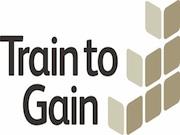Ofsted report underlines mixed Train to Gain success

The Ofsted Chief Inspector’s Annual Report lavishes mixed praise on the Government’s much vaunted Train to Gain skills programme.
The Train to Gain scheme is designed to meet the skills and developmental needs of employers by providing funded training for employees. The initiative has drawn praise from employers, who have highlighted the positive effects Train to Gain has had on work practice and limiting staff turnover.
The report reveals that a major success of the Train to Gain programme has been in raising employees’ expectations of training, whilst enabling many people who are normally excluded from training and developmental opportunities access to learning for the first time. However, the increase in training participation has encouraged numerous new entrants into the training and skills market, which has made it all the more important that the provision of training is of high quality, something the Ofsted report reveals has suffered as a result of the sector’s growth.
Independent research by the Association of Learning Providers (ALP) into the findings discovered that new training providers performed badly in the inspections, particularly those that have entered the market as part of the Train to Gain programme. ALP’s research also revealed that their members outperformed non-members in every inspection criteria.
Paul Eeles, ALP’s director of sector reforms, said: “These results for ALP members … demonstrate that long standing independent providers offer high quality provision. Our members have a lot to be proud of from this year’s results which demonstrate their commitment to meeting the needs of the learners and employers they serve.”
He continued: “ALP has always been hawkish on quality and our members are as committed to delivering high quality programmes as we are, we are concerned that this year’s Chief Inspectors report found much poor quality provision amongst Train to Gain only providers who have been operating in the system for the last couple of years and would call on the Learning and Skills Council to act decisively to eradicate poor provision within the sector, which unfairly impacts on the Work-based learning sector as a whole.”
Of the 242 inspections of work-based learning in the period 2008/09, an increasing number are part of the Train to Gain initiative, accounting for almost half of all inspections. Ofsted’s report reveal that just 42 per cent of the 242 work-based learning providers inspected achieved a good or outstanding rating in their effectiveness, against 60 per cent in 2007/08.
However, despite an encouraging increase in the success rates of apprenticeships, including Train to Gain programmes, rising from 49 per cent in 2005/06 to 64 per cent in 2007/08, the report emphasised that whilst any increase is welcome, the current rate of success is less than acceptable.
Ofsted also highlights the fact that despite an increase in the number of successful completions, progress is often slow and the provision of progress reviews and target setting is insufficient and ineffective. In addition, the stop-start nature of Train to Gain funding is another frustration as it presents a considerable barrier to the development of learners and risks undermining the perceived value of training. Crucially, whilst the programme has increased employer demand for training, it has so far failed to encourage them to invest in other areas of training and skills development.
Inspectors also highlighted a dearth of provision of Skills for Life, such as literacy and numeracy, by Train to Gain and other skills providers, with 60 per cent agreeing it was insufficient.
Alex Beattie







Responses